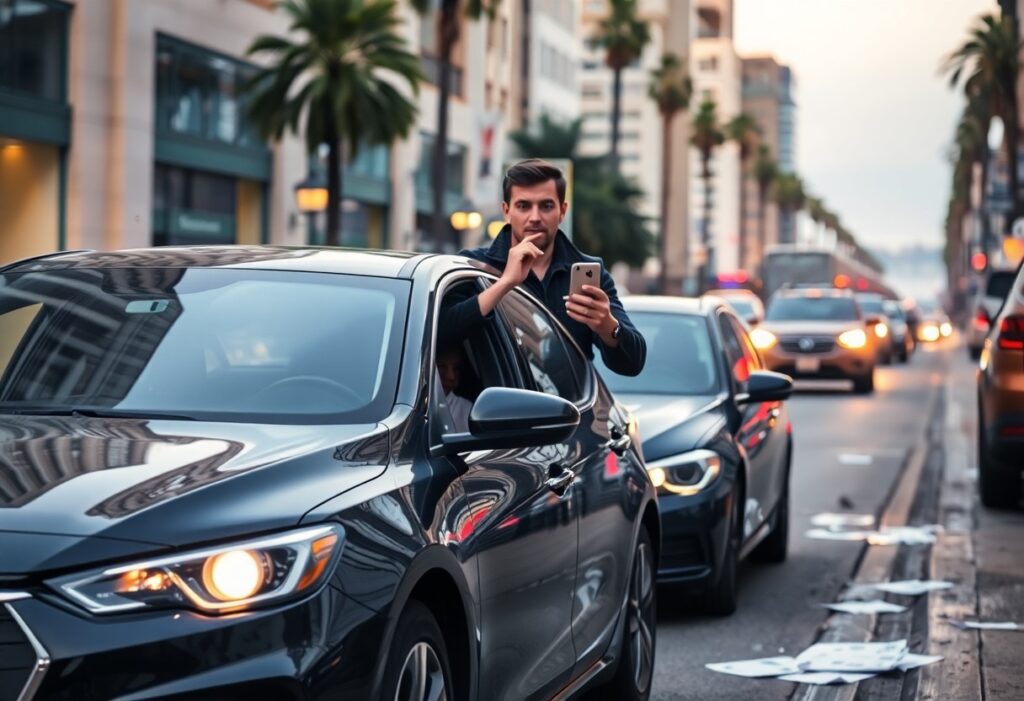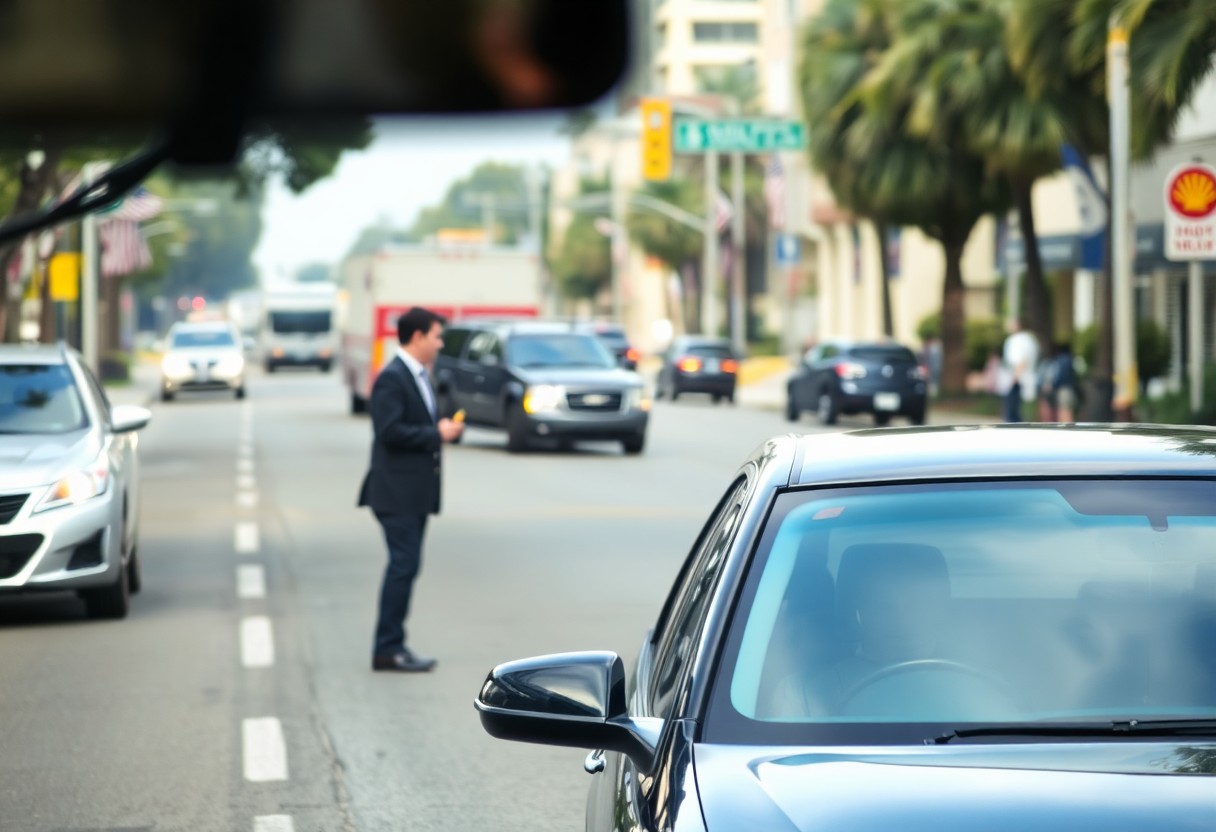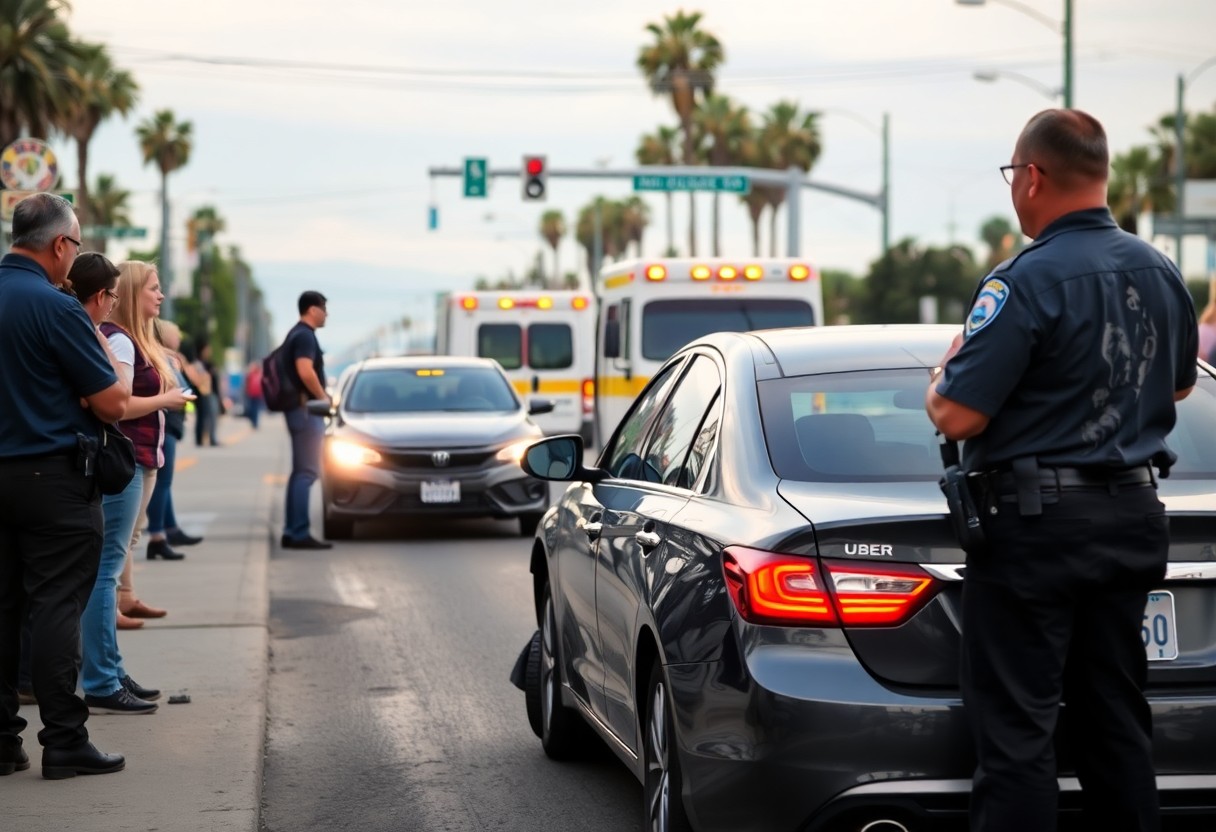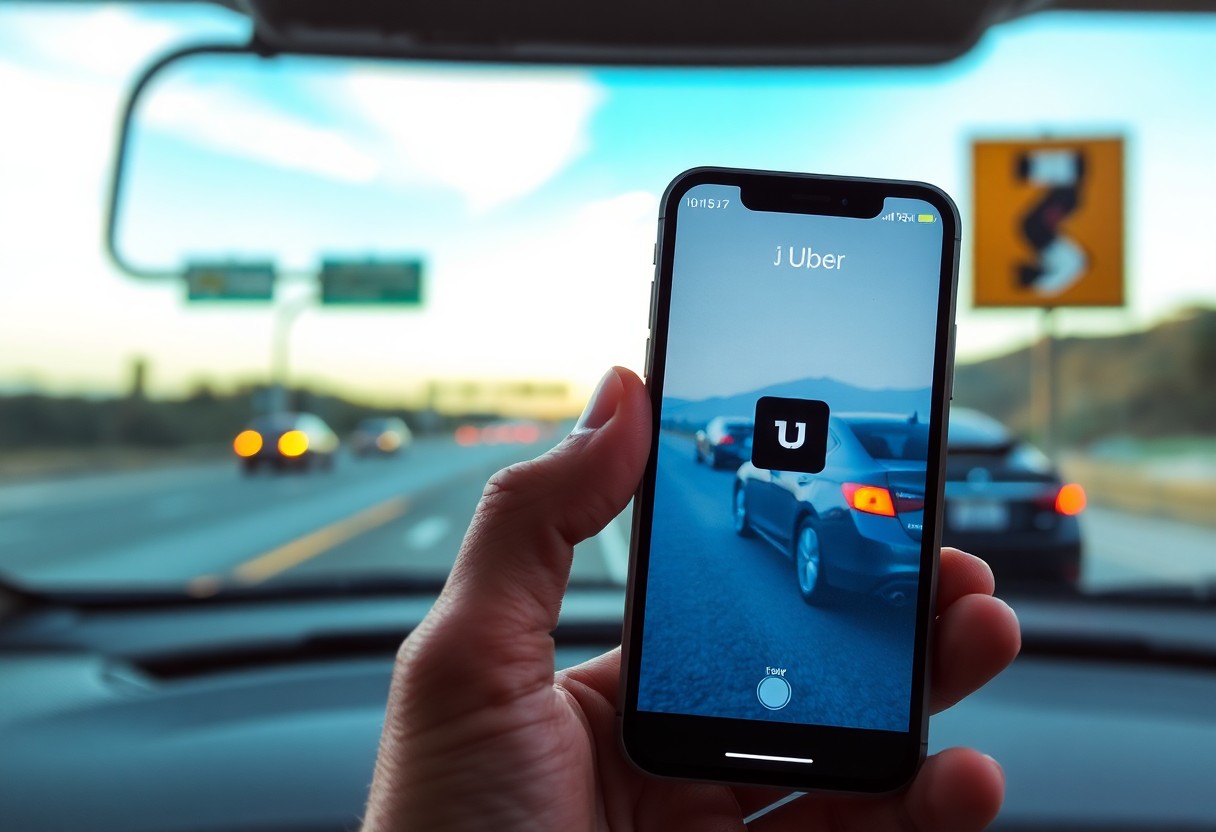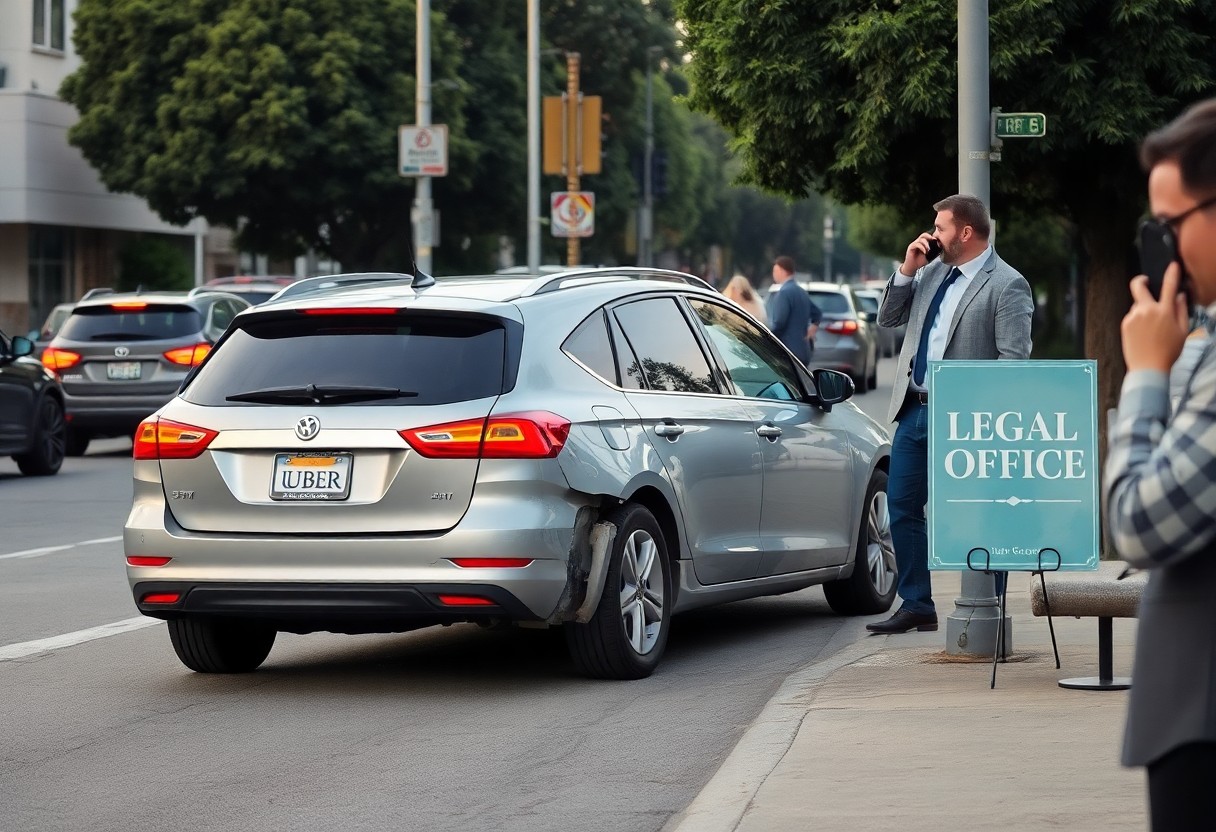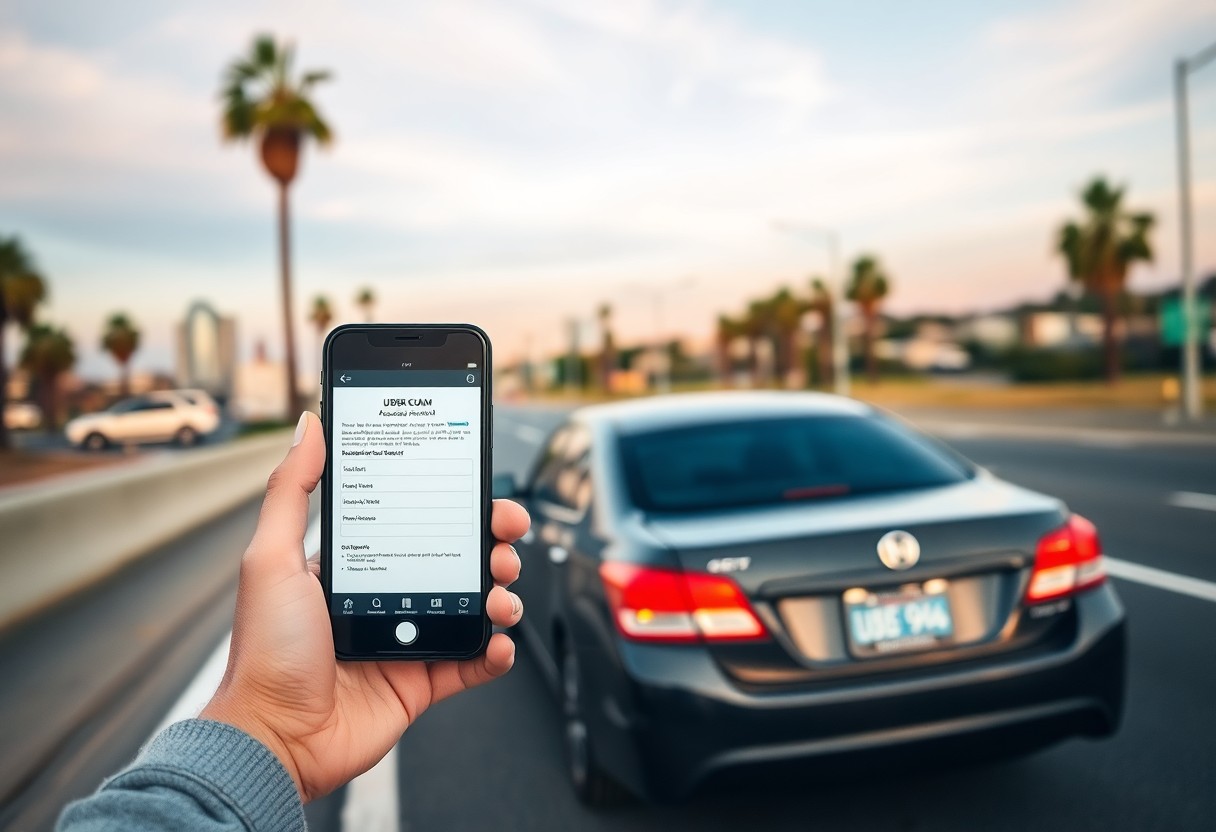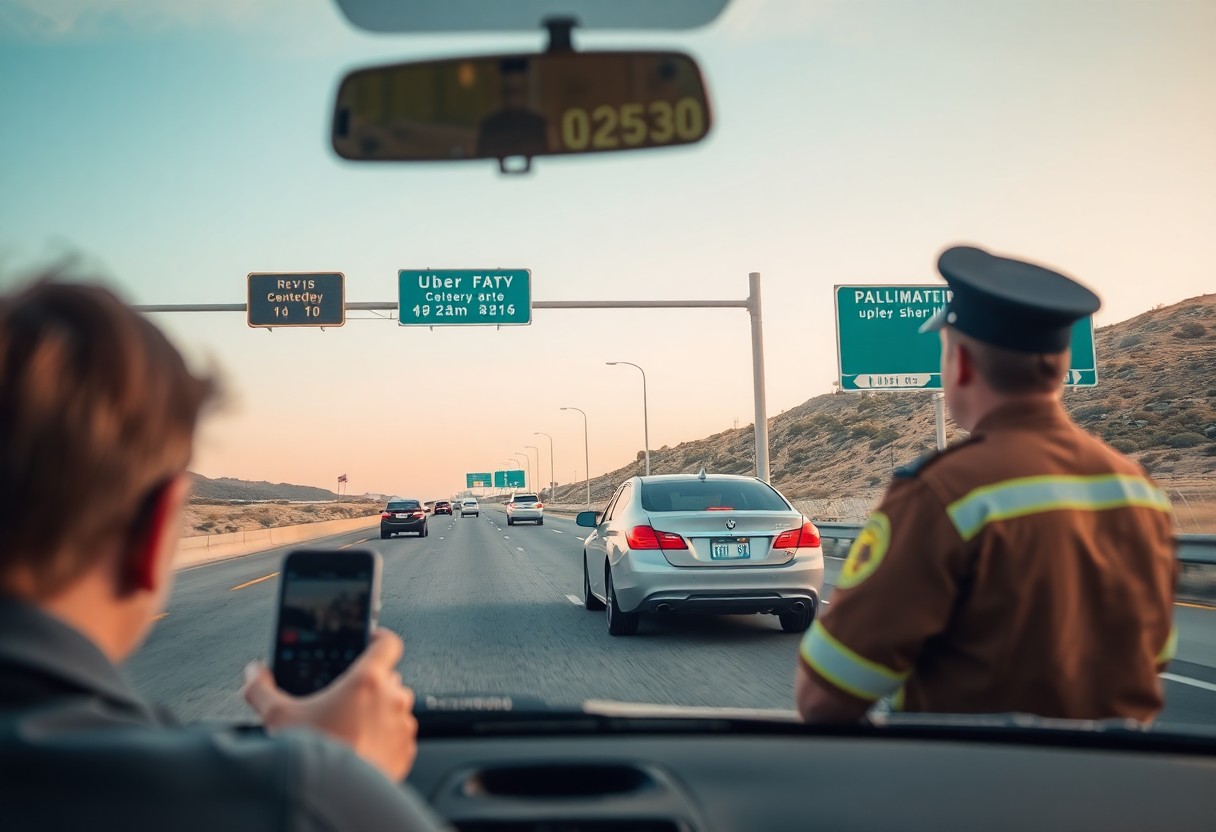Many drivers underestimate the methods Uber employs when it comes to handling accident claims in California. Understanding these secret tactics can make a significant difference in whether you receive the compensation you deserve after an accident. Uber often relies on *detailed strategies* to challenge your claims, leaving you at a disadvantage without adequate knowledge. By familiarizing yourself with these dangers, you can better prepare and enhance your chances of a successful claim. Explore how their tactics operate and empower yourself to navigate your accident claim effectively.
Key Takeaways:
- Documentation: Uber often requests extensive documentation and evidence to validate an accident claim, which can lead to delays and confusion for the claimant.
- Claims Process: The claims process utilized by Uber can be intentionally complex, making it difficult for individuals to navigate and understand their rights.
- Legal Representation: Having legal representation is beneficial, as Uber may deploy tactics to undermine a claim that could be countered by an experienced attorney.
Understanding Uber’s Insurance Policies
While navigating the complexities of Uber’s insurance policies, it’s necessary to understand how these policies were designed to protect both riders and drivers. Uber operates under a unique framework of rideshare insurance that comes into effect based on whether the driver is active on the app, transporting a passenger, or logged off. This tiered system significantly impacts the claims process, and failing to comprehend the varying levels of coverage could affect your accident claim if you were involved in an incident while using the service.
Overview of Rideshare Insurance
Insurance coverage in the rideshare industry is different from traditional taxi services. Uber maintains a liability insurance policy that is active whenever the driver is using the app. When a driver is offline, no rideshare insurance is provided. However, when the app is on, your coverage might vary depending on the driver’s status. If a driver is actively engaged in a trip, Uber provides up to $1 million in liability coverage, which includes both bodily injury and property damage. Understanding these specifics is vital for ensuring that you have sufficient coverage in case of an accident.
Limitations and Exclusions
Any discussion of Uber’s insurance policies must include an understanding of the limitations and exclusions that can affect your claim. While Uber offers substantial coverage during active rides, there are significant gaps when the driver is not engaged in a trip. For instance, if you are injured in an accident caused by a driver who was logged off the app, you may find that neither Uber nor any personal insurance policy offers sufficient compensation. Additionally, there may be situations where drivers do not have the appropriate insurance on their vehicle, which may hinder your ability to recover damages.
Ubers’ policy delineates specific scenarios that don’t qualify for coverage, such as instances involving driver’s negligence outside the app’s operational mandate. If a driver causes an accident while not on a trip, they may be reliant on personal insurance, which often has lower coverage limits or may even exclude ridesharing altogether. It’s important for you to evaluate the nuances of these limitations and seek the right legal guidance as soon as possible to better protect your rights and enhance your chances of recovering damages.
Common Reasons for Claim Denials
If you are navigating the aftermath of an accident involving Uber, it can be frustrating to understand why your claim might be denied. Knowing the common reasons for these denials can help you better prepare your case and increase your chances of a successful outcome. Uber utilizes various tactics to minimize their liability, and being aware of these can empower you in your claims process.
Incomplete or Inaccurate Information
Against the backdrop of your accident claim, providing incomplete or inaccurate information is a red flag for Uber that could lead to a denial. If any aspects of your report, such as the details of the accident, the parties involved, or the extent of your injuries, are inconsistent or insufficiently documented, it creates an opportunity for Uber to refute your claim. Make sure all information is meticulously gathered and recorded, including witness statements, police reports, and medical documentation, to avoid giving them a reason to question your credibility.
Disputes over Liability
Alongside the potential pitfalls of inaccurate information, disputes over liability are another common reason for claim denials. If there’s uncertainty about who is responsible for the accident, Uber may latch onto this ambiguity to challenge your claim. You may find yourself in a situation where both parties refute responsibility, which can lead to prolonged negotiations or outright denials of your claim. Being well-prepared with evidence that clearly establishes fault can mitigate these disputes.
Plus, it’s necessary to compile as many relevant details as possible, such as eyewitness accounts, traffic camera footage, and police reports, to substantiate your claims about who is at fault. The more documented evidence you can provide that aligns with your account of the incident, the less likely it is that Uber will be able to successfully dispute liability. When navigating these complexities, consider seeking legal advice to enhance your strategic approach and strengthen your case.
The Role of Accident Reports
Unlike many people may believe, the role of accident reports is vital when it comes to processing your claim following an incident involving an Uber vehicle. These reports serve as an official record of the event, providing pertinent details that can directly impact your case. If a police officer responds to the scene of your accident, they will usually file a report that documents key information such as the time, location, parties involved, and any witnesses present. The lack of a comprehensive report can hinder your ability to substantiate your claims against Uber, making it necessary for you to ensure that you have access to this documentation.
Importance of Police Reports
About police reports, they not only contain critical details surrounding the accident but also reflect an impartial account, which is vital when determining liability. You may think that only your testimony matters, but insurance companies, including those representing Uber, often rely heavily on police reports when evaluating accident claims. Should the report indicate that the Uber driver was at fault, it strengthens your position significantly and makes it more challenging for Uber to deny your claim.
How Reports Affect Claims
About how reports affect claims, insurance adjusters use these documents to assess the facts surrounding the accident, which can dramatically influence the outcome of your claim. If the report contains evidence that supports your version of events, it will be much harder for Uber to dispute your claim. Conversely, any discrepancies or omissions in the report can be manipulated by Uber’s legal team to undermine your credibility and minimize your compensation.
Hence, it is imperative to understand that the absence or inaccuracy of a police report can lead to a challenging road in reclaiming the compensation you deserve. If the report downplays the severity of the accident or incorrectly allocates fault, you may find yourself fighting an uphill battle. Thus, ensuring a comprehensive and truthful accident report is necessary in fortifying your claim and navigating the complexities of dealing with Uber’s insurance protocols.
Tactics Used by Uber’s Legal Team
After experiencing an accident while using Uber, you might be shocked to find the lengths to which Uber’s legal team will go to deny your claim. Understanding these tactics can be vital for protecting your rights and ensuring you receive the compensation you deserve. This chapter will research into some of the common strategies employed by Uber to undermine accident claims and how they might affect you as a claimant.
Delaying Tactics
Used frequently in personal injury cases, Uber’s legal team often employs delaying tactics to complicate the claims process. This may manifest as repeatedly requesting additional documentation or extending investigatory periods without clear justification. These tactics can lead to increased stress and frustration for you, as you await the resolution of your claim while accumulating medical bills and other expenses related to the accident.
Minimizing the Severity of the Accident
Among the many strategies utilized by Uber’s legal representatives, minimizing the severity of the accident is a prominent tactic. They may argue that your injuries are exaggerated or attempt to attribute them to pre-existing conditions or unrelated incidents. This technique not only aims to reduce potential compensation but also casts doubt on your credibility, making it more difficult for you to secure the recognition and recompense you deserve.
At the core of this tactic is Uber’s desire to influence how the accident is perceived, portraying it as a minor incident that does not warrant the claims being made. In doing so, they may call upon medical experts who downplay your injuries or scrutinize your treatment records for any signs that could support their narrative. This relentless pursuit to undermine your case places you in a vulnerable position, making it vital to gather all necessary documentation and seek professional legal counsel that can navigate the complexities of such claims.
Gathering Evidence to Support Your Claim
Keep in mind that the evidence you collect right after an accident is vital in establishing the legitimacy of your claim against Uber. The more thorough and organized your documentation, the stronger your case will be. It is vital to act quickly to gather relevant data and details while the scene of the accident is still fresh. This could include taking photographs of vehicle damages, the accident scene, any visible injuries, and other pertinent surroundings. Make sure to capture clear images from multiple angles to bolster your claim. Any physical evidence can help demonstrate the circumstances of the accident and support your account of events.
Documenting the Scene
For your documentation to be effective, be systematic in your approach. Begin by noting the date, time, and location of the accident, as well as environmental conditions like weather or road conditions. Use your smartphone to record videos or take pictures, focusing on details such as traffic signs, road markings, and tire tracks. This visual evidence can be invaluable in reconstructing the accident later. Also, create a detailed narrative of what transpired, including any statements made by the other party. Your comprehensive documentation increases the likelihood of a favorable outcome when dealing with Uber’s claims representatives.
Gathering Witness Statements
Your ability to gather witness statements can significantly bolster your case. Gathering the contact information of anyone who saw the accident is important, as their unbiased accounts can lend credibility to your claim. Witnesses may provide testimony that supports your version of events, making it harder for Uber to dispute your claims. As such, follow up with these individuals soon after the incident to ensure their memories are still fresh.
Hence, when seeking witness statements, be proactive in approaching bystanders or involved parties at the scene. Politely ask them if they would be willing to provide a statement and obtain their contact information. It is beneficial to record their accounts or take written notes of what they saw, so you can present their testimonies later. Having credible and neutral witnesses to back up your claim could shift the balance of evidence in your favor, potentially making it more difficult for Uber to deny your claim based on disputed facts.
Navigating the Claims Process
Many individuals who have been involved in an accident while using an Uber may find the claims process daunting. Understanding how to effectively navigate this process can significantly impact the outcome of your claim. Initially, you need to gather all relevant information related to the accident, including the date, time, location, and the contact information of any witnesses. The more detailed information you can provide, the stronger your claim will be. After this, your next step will involve notifying Uber about the incident and understanding their procedures for filing a claim.
Steps to File a Claim
By organizing your documentation and being prepared, you increase your chances of successfully filing a claim with Uber. After you communicate all relevant details of the incident, you will need to fill out their claim form accurately. This form is crucial as it will serve as the basis of your claim. Include photographs of the accident scene, medical records, and any other evidence that supports your case. Keep thorough records of all communications with Uber, including dates, times, and summaries of conversations.
When to Seek Legal Assistance
Legal representation may be necessary if your claim is not being addressed satisfactorily. If you find that Uber is unresponsive or if they deny your claim or offer a settlement that seems inadequate, you should consider consulting with an attorney specializing in rideshare accidents. A qualified lawyer can help you understand your legal rights and determine the best course of action to take. They will also assist in negotiating a fair settlement on your behalf, ensuring that you are not being taken advantage of during the process.
Steps you take early in the claims process can set the tone for your entire experience. If your case appears complicated or if the damages are significant, seeking legal assistance sooner rather than later is often a wise decision. An attorney can assess your case, gather necessary evidence, and ensure your voice is heard, potentially increasing the likelihood of a favorable outcome. Having professional guidance during disputes can protect your rights and help you navigate the often murky waters of claims processing with more confidence.
To wrap up
Hence, understanding the tactics that Uber employs to deny your accident claim in California is necessary for navigating the complexities of rideshare insurance claims. By being aware of the potential obstacles, such as the company’s emphasis on mitigating liability and their reliance on legal loopholes, you can develop a more informed strategy when presenting your case. This knowledge empowers you to gather the necessary documentation and evidence to reinforce your position while also highlighting the importance of seeking legal counsel, if needed, to protect your rights.
To summarize, your journey to reclaiming damages after an accident involving an Uber driver can be challenging, but it is not insurmountable. By being proactive and well-prepared, you can enhance your chances of a successful claim. Equip yourself with the information and resources you need to confront the challenges presented by Uber’s tactics, ensuring you stand a fair chance to secure the compensation you deserve.


